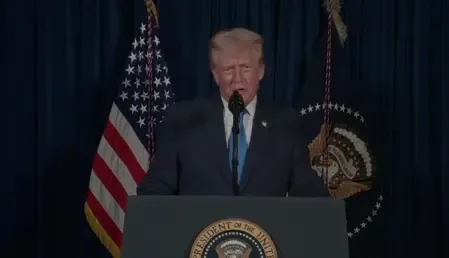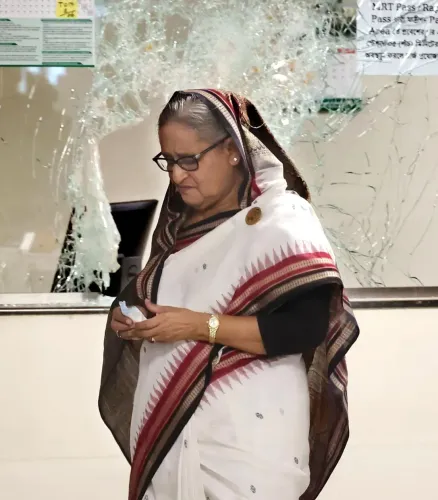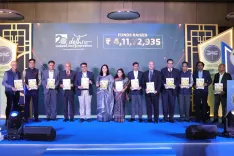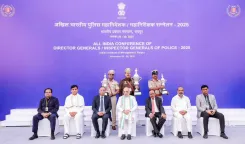Indonesia Launches Agency to Revamp SOE Management and Stimulate Economic Growth

Synopsis
Key Takeaways
- BPI Danantara will enhance SOE operational management.
- Focus on achieving 8% economic growth.
- Inclusion of women and disabled individuals in strategic roles.
- Legal certainty for SOE asset management.
- Potential for attracting foreign investment.
Jakarta, Feb 7 (NationPress) The investment framework in Indonesia is evolving as the government alongside the House of Representatives has endorsed the Third Amendment to Law Number 19 of 2003 regarding State-Owned Enterprises (SOEs) on Tuesday.
A pivotal aspect of this amendment is the creation of the Daya Anagata Nusantara Investment Management Agency (BPI Danantara), a strategic entity aimed at operational management of SOEs and enhancing dividend management to align with the government's economic aspirations.
Minister of State-Owned Enterprises Erick Thohir stated during the House of Representatives Plenary Meeting in Jakarta, "BPI Danantara will manage SOEs operationally and optimise dividend management to assist the government in achieving the 8 percent economic growth target."
The formation of this agency is part of a comprehensive transformation initiative to consolidate SOE oversight, improve investment efficiency, and boost operational capabilities through measures such as operational holdings, restructuring, privatisation, and the establishment or dissolution of subsidiaries.
This legislation empowers BPI Danantara with the authority to manage SOEs directly or in partnership with external entities, making it an attractive investment option for both domestic and international investors. This is further bolstered by Indonesia's expansive and thriving market, as well as ongoing infrastructure developments.
From a legal standpoint, the amendment offers regulatory assurance by affirming the classification of SOE assets as distinct state assets, facilitating more flexible corporate engagements. It also prioritises sound corporate governance and accountability in SOE asset management, in accordance with existing laws.
Moreover, the amendment incorporates provisions to promote inclusivity within SOE human resources, ensuring opportunities for individuals with disabilities, local communities, and women to occupy strategic roles, such as directors and commissioners.
According to Erick, SOEs represent vital state assets integral to Indonesia's economic progress. The transformation of SOEs through BPI Danantara constitutes a significant measure toward fulfilling the vision of an Advanced Indonesia by 2045, fostering collaboration among the government, SOEs, and all stakeholders.
Toto Pranoto, an economics expert at the University of Indonesia, asserts that the establishment of BPI Danantara is a logical advancement for enhancing the efficiency of state asset management and stimulating investment in Indonesia.
Muliaman Hadad, former Deputy Governor of Indonesia's central bank and current Chairman of the Financial Services Authority's Board of Commissioners, has been appointed to lead BPI Danantara, as reported by Xinhua news agency.
"The ongoing collaboration will serve as a robust foundation for BPI Danantara to effectively generate a positive impact on the welfare of the Indonesian populace," stated Muliaman.
Piter Abdullah, executive director of the Segara Institute, evaluated that BPI Danantara represents a strategic move that will enhance the productivity of public assets and elevate the competitiveness of the national economy. "With BPI Danantara, we can observe that state investment is managed more strategically and measurably," remarked Piter.
He also highlighted that the BPI Danantara model resonates with global best practices and possesses the potential to attract additional investment into Indonesia.
Nailul Huda, an economist from the Centre of Economic and Law Studies, opined that BPI Danantara, leveraging its access to substantial SOE assets and regulatory clarity, will effectively manage investments across diverse sectors.
Nevertheless, challenges persist. He pointed out that Indonesia requires significant financial backing, especially from foreign investors. The global economic climate's volatility has rendered investors more cautious.
"Another challenge is the global economic instability, which causes investors to be more cautious when investing their wealth," Nailul conveyed to Xinhua.









